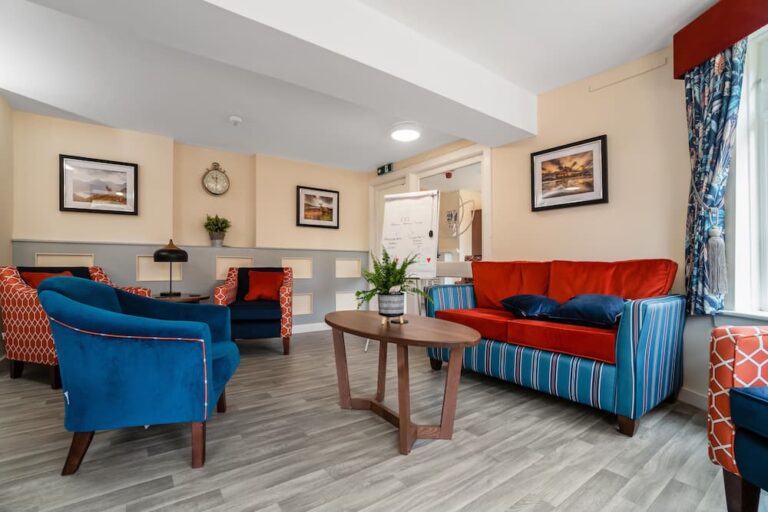Social situations are a part of life. Engagement, socialisation and being around others are what make us human. Yet for some individuals, such situations are too much to handle, resulting in symptoms of social anxiety disorder.
Commonly starting off in teenage years and early adult life, social anxiety can aggravate and continue through to adult years, standing as a significant form of anxiety. This can be a very challenging disorder to manoeuvre around, as socialisation is part and parcel of most days.
Triggered and developed by a multitude of stimuli, from genetics to early trauma, to experiences of isolation and unrealistic social expectations, it stands as a complex diagnosis, increasing the essential step of treatment.
Like any mental health disorder, social anxiety can be managed for some individuals. However, again like further mental health disorders, professional support is necessary for some individuals.
If you’re struggling, it’s important to consider social anxiety disorder treatment. Without such steps, social anxiety can reduce the quality of life at a significant scale, which we hope is avoidable for you here as part of our dual diagnosis addiction and anxiety treatment programmes at Nova Recovery.
 Get in Touch
Get in Touch
Our admissions team can give you expert help and advice on the best options available for treating social anxiety and addiction, get in touch today to find out more.
What is social anxiety disorder?
Have you ever felt a sense of anxiety while attending a social event? Have you ever experienced fear while engaging with others? Have such feelings ever made you cancel plans or leave without notice? Such experiences reflect the symptoms of social anxiety disorder.
Nerves are common when considering extensive or unfamiliar social situations. For those who are shy or introverts, nerves are in fact normal when faced with engagement.
Yet, the average person, even those with shy tendencies can warm to socialisation once initial exposure has been experienced. For someone with social anxiety disorder, unfortunately, no amount of exposure will however ease such acceptance, causing fear and overbearing symptoms linked to phobia.
Many individuals will put such behaviours to the excuse of feeling shy or having low confidence levels. However, social anxiety is common, is worrying, and is life-limiting if enabled. The impacts of social anxiety disorder can increase isolation, can develop the risk of further anxiety-related disorders, and can pull apart everyday life.
Social anxiety for some individuals can be managed. However, for those with extreme cases, where being left alone is the easiest option, social anxiety disorder treatment will be recommended, to ease the intensity of symptoms.
Why does social anxiety occur?
While compared with the characteristics of an introverted personality, social anxiety disorder is a diagnosis under the anxiety umbrella, which can be caused by a number of different things. Some put social awkwardness down to a lack of confidence, others too low engagement as a child, and others around a lack of social skills. However, a social anxiety disorder can amount to both nature and nurture stimuli.
Social anxiety can be taught by reflecting on the choices and behaviours of others. It can be genetic, passed down through genes. Isolation from a young age through parental upbringings can also motivate the uneasy feeling of social exposure. Early life events, where trauma or distress is experienced can also be subconsciously attached to socialisation, making any form of interaction difficult to accept.
Cognitive weaknesses, focusing on brain structure and the susceptibility of mental health issues is also a driver of social anxiety. All of the above, paired with unrealistic expectations of socialisation can all trigger the symptoms of social anxiety, which if untreated or undiagnosed, can develop into an ongoing disorder.
If you’re experiencing symptoms of social anxiety, including the below, this shouldn’t be put down to your personality type or confidence, but down to the risks of social phobia. In this instance, social anxiety disorder treatment will be beneficial, to offer perspective and management of such symptoms.
Signs of social anxiety include:
- Panic, including active attacks over socialisation
- An extreme concern of any form of engagement
- The inclination to attend social events
- The desire to isolate oneself from others
- Negative thoughts over socialisation
- The inability to complete everyday tasks and responsibilities down to worry
- Feeling paranoid over the impacts of social interaction


Scotland Based Mental Health & Addiction Treatment Providers
Key offerings available include:
- Drug and Alcohol Rehab in Scotland
- 1:1 Support from Clinical Nurse Practitioners, Registered Mental Health Nurses and Therapists
- Access to Trained Psychiatrists
- 24-Hour Nursing Care
- Comfortable & Quality Accommodation
- Clinically Led Recovery Model Underpinned by Cognitive Behavioural Therapy (CBT)
- 1 Year Aftercare
So what are you waiting for?
Begin your journeySuitable social anxiety disorder treatment
There are some proactive self-help tips surrounding the maintenance of anxiety. Breathing and relaxation techniques are a good starting point, to help promote mindfulness and balance. Increasing personal understanding around triggers and how to manage the exposure of such triggers can control symptoms of social anxiety.
However, as feelings of anxiety will be linked to a deeper meaning, for most, in tandem with self-help, professional social anxiety disorder treatment will be recommended.
Suitable forms of treatment for social anxiety disorder focus on psychological restoration, to change negative outlooks and habits, with the aim of positivity. Cognitive behavioural therapy and counselling are the most effective forms of treatment, to unravel emotional responses, and retune them to digest perspectives.
You may currently see social situations as the enemy. However, it’s likely that social situations have taken the fall for greater emotional response, which will need to be changed in order to adapt to the exposure to socialisation. Through CBT and talking therapies, you can work to change your perspectives, to see socialisation as a positive for your mood, confidence and lifestyle, rather than a negative.
Antidepressants and mood stabilisers may also be recommended as a treatment option, to help suppress and control symptoms of anxiety. However, such medications are only beneficial in moments of panic. Instead, understanding, education, change and management will be aimed through psychological treatment services, followed by self-help tips.
At Nova Recovery we offer treatment for social anxiety for people who are suffering from substance abuse to drugs or alcohol. Dual diagnosis treatment aims to treat both mental health and physical addiction to give you the best chance of long-term recovery.
Overcoming anxiety with professional support
Anxiety may feel like a manageable emotion. However, once such feelings develop into a disorder, which controls your behaviours, attitudes and responses, professional support should be considered.
Social situations are a part of life, even for those who like to be alone. It’s important to reach a point where you can accept the unpredictability of socialisation, to manage social anxiety. Through professional support, you can work towards this, to understand, digest and control social situations and engagements, to protect your health and well-being.
At Nova Recovery, we’re a specialist private rehab, offering dual-diagnosis addiction and mental health treatment services and recovery programmes. We provide tailored programmes for addiction and social anxiety disorder treatment to help you ease and normalise the acceptance of socialisation.
Work with our team to reach your recovery goals, to control your anxiety about social exposure.
Dr Alexander Lapa
- Author
- Last updated: July 10, 2023
Dr. Lapa (MBBS, PG Dip Clin Ed, OA Dip CBT, OA Dip Psychology, SCOPE Certified) graduated in Medicine in 2000 and has since gained extensive experience in various psychiatric settings, handling a wide range of illness presentations and patient backgrounds in inpatient, community, and secure environments. This experience has been complemented by ongoing professional development in postgraduate clinical research, closely linked to their daily work as an NHS and Private Psychiatrist.





